Common agricultural policy (CAP) instruments and measures, particularly under rural development, contribute to a higher level of ambition in terms of biodiversity at national level. Regarding water issues, the CAP put it higher on the agenda of Member States by raising awareness through water-related CAP objectives. Those are among the key findings of two studies published today by the European Commission: Evaluation of the impact of the CAP on habitats, landscapes, biodiversity and Evaluation of the impact of the CAP on water.
The study on the impact of the CAP on biodiversity evaluates the positive and negative, direct and indirect impacts of the 2014-20 CAP instruments on habitats, landscapes and biodiversity. The second study evaluates the impact of the CAP measures and instruments on water quality and quantity. Both evaluations are based on five criteria: effectiveness, efficiency, coherence, relevance and EU-added value, and provide an overview of the Member States’ implementation choices.
Among the key instruments and measures that contribute most to the protection of habitats, landscapes and biodiversity, the CAP’s Agri-environment-climate measures (AECMs) under the rural development framework show positive results, especially for tailored and targeted schemes. This includes the support to High nature value (HNV) farming systems, to wild pollinator habitats and landscape features, and to organic farming. In addition, greening measures also contribute to the protection of biodiversity through the maintenance of permanent grassland and through ecological focus areas (agricultural land dedicated to biodiversity and habitats).
As the CAP’s impact on water use, the evaluation showed that cross-compliance contribute to a better management of water by linking farmers’ area- and animal-based CAP payments to the respect of certain obligations, many of which directly target water. Some of these obligations are part of existing EU law, such as the Nitrates Directive. Others are standards of good agricultural and environmental practice laid down by the CAP itself, such as establishing buffer strips along watercourses and the prohibition of discharging dangerous substances. The greening measures, as implemented by Member States, also guarantee the maintenance of minimum beneficial practices by farmers. Schemes under rural development also contribute to better water management. Organic farming and AECMs, for instance, improve the chemical status of waterbodies and are the most effective in reducing agricultural pressures on water.
Both studies found that the EU framework is helping to achieve higher ambitions for both areas, as well as ensuring a baseline of beneficial rules and standards. Nonetheless, both studies found that the CAP’s contribution and benefits are highly dependent on Member states’ implementation choices and priorities. Therefore, they vary significantly from one Member State to the other.
Link with post-2020 CAP and Green Deal
Both studies put forward some recommendations to improve the CAP in terms of biodiversity preservation and better water management. Several aspects are already addressed in the CAP proposals put forward by the European Commission in June 2018.
Firstly, the studies recommend a strategic approach in coherence with the environmental and climate-related needs. The CAP proposals set nine EU objectives, including two particularly relevant to biodiversity and water: improved management of natural resources such as water, soil and air; and contribute to the protection of biodiversity, enhance ecosystem services and preserve habitats and landscapes. To achieve these objectives, Member States will design a CAP strategic plan, based on a thorough analysis of their local needs and conditions. Relevant national competent authorities will have to be involved in the preparation of the environment and climate-related aspects of the CAP plan. Stakeholders will also have to be consulted.
Furthermore what will replace cross-compliance and greening, the so-called ‘conditionality’, in the next proposed CAP sets a more ambitious baseline for climate and environmental care, in line with the studies’ recommendations. For instance, it will now include a ban to plough any permanent grassland in Natura 2000, will require crop rotation (rather than crop diversification at present) and include the maintenance of non-productive features on all agricultural land receiving CAP income support. Conditions for CAP support for the expansion of irrigation will also be much more restrictive.
The two studies specifically pointed out the benefits of AECMs under rural development. Those will be continued in the next CAP proposals, but will also be complemented by ‘eco-schemes’ under the direct payment framework – a new tool which will reward farmers that implement practices good for the environment and climate, on a voluntary basis. Member States will decide what eco-schemes to offer, depending on their needs and territory.
Finally, as identified by the studies, knowledge and advice are key drivers in the promotion of a more sustainable way of producing. Farm advisory services will continue to play a key role in the next CAP, while knowledge and innovation will be addressed in CAP strategic plans as a cross-cutting objective.
All these elements will help to achieve overall higher environmental and climate ambitions in the agri-food sector, key to achieve the Green Deal’s objectives. Various initiatives to be pursued within the Green Deal will be relevant to making farming, food and rural areas more sustainable, including from the perspectives of water and biodiversity. These include the Farm to Fork strategy and Biodiversity strategy, both of which will set EU-level political priorities and better link the CAP and other policies in order to address them.
The Commission’s CAP proposals have the potential to fully contribute to the transition towards greater sustainability and support farmers along the way.



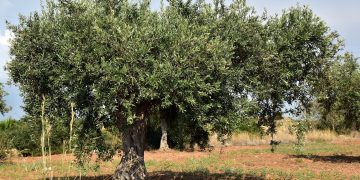

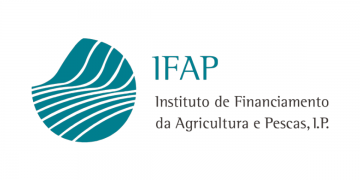

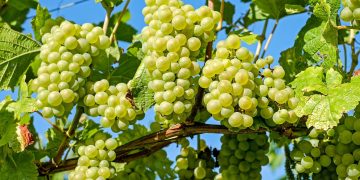

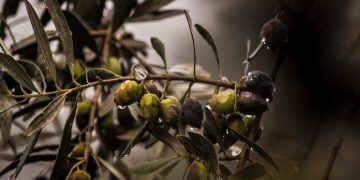












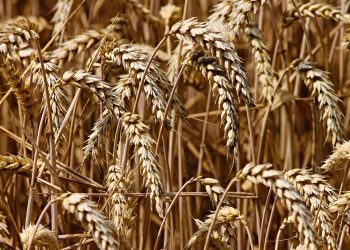





























Discussão sobre este post